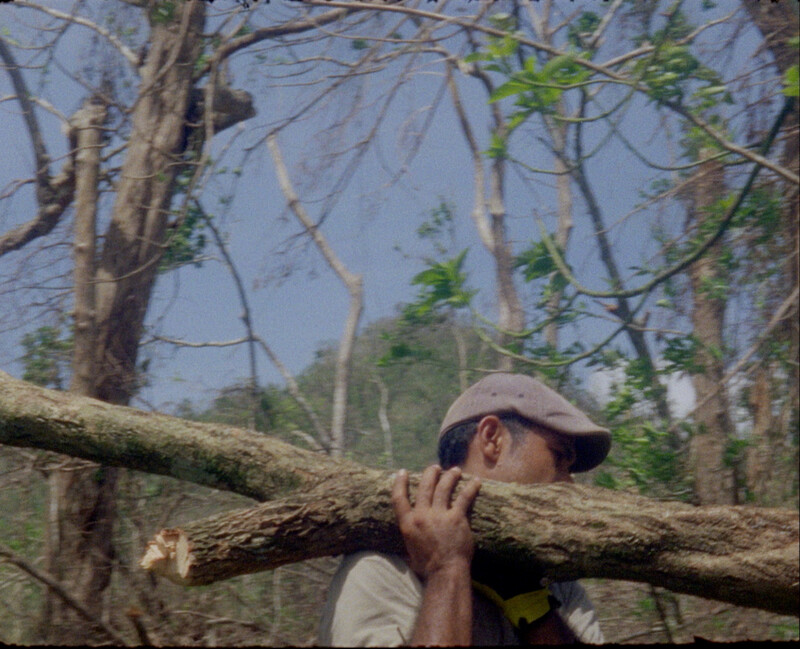
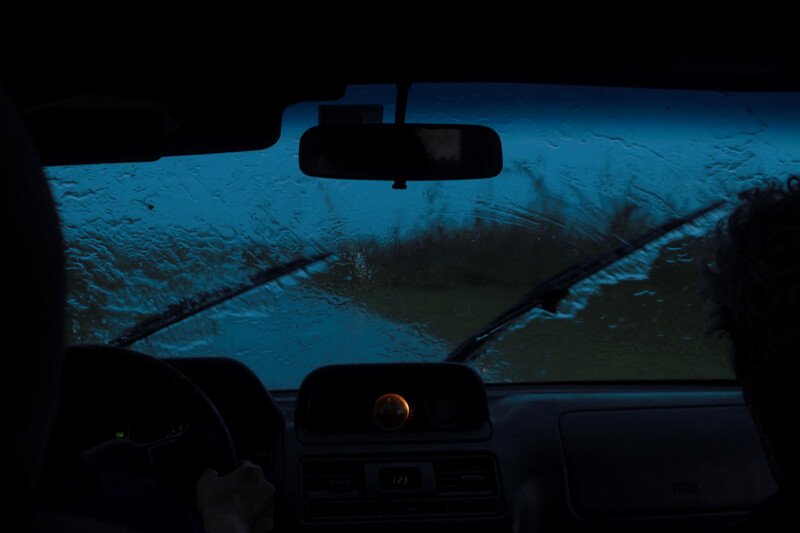
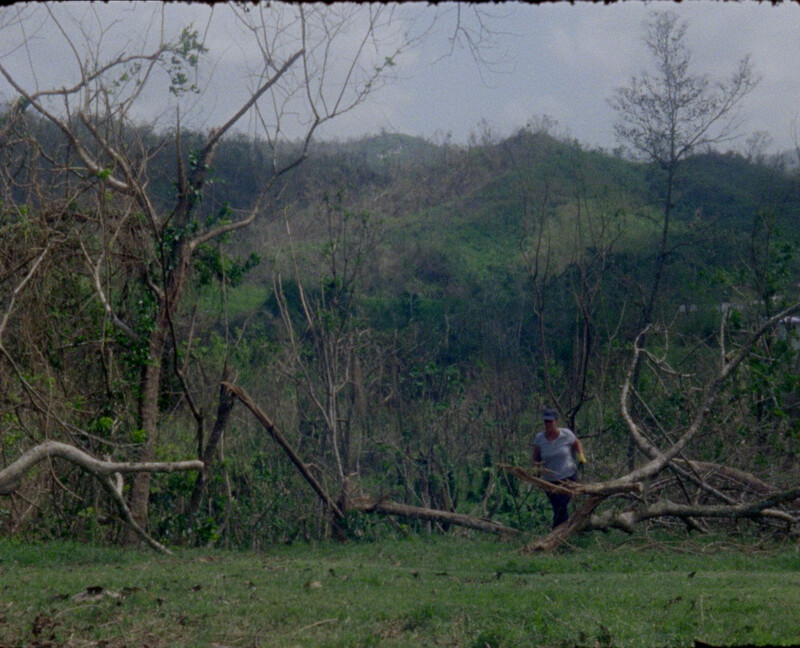
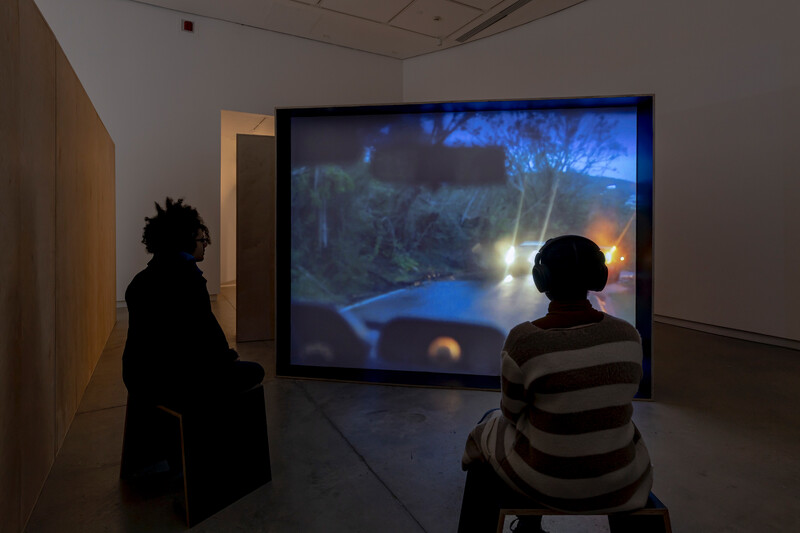
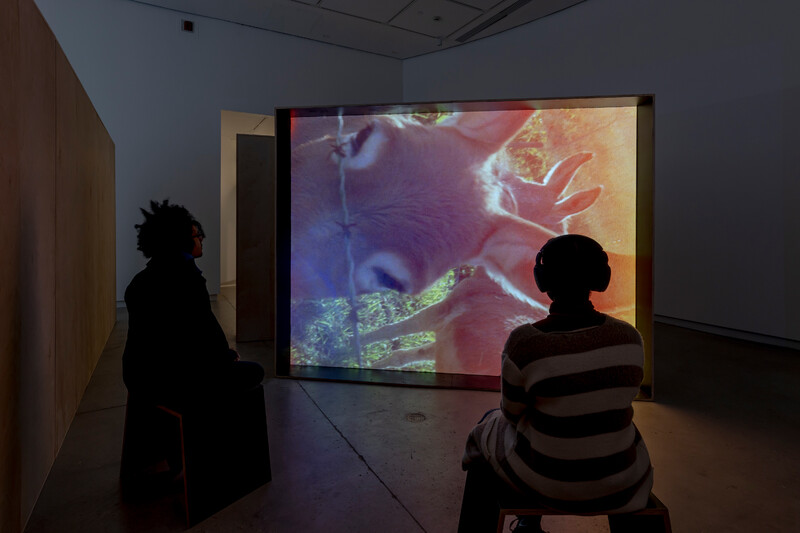
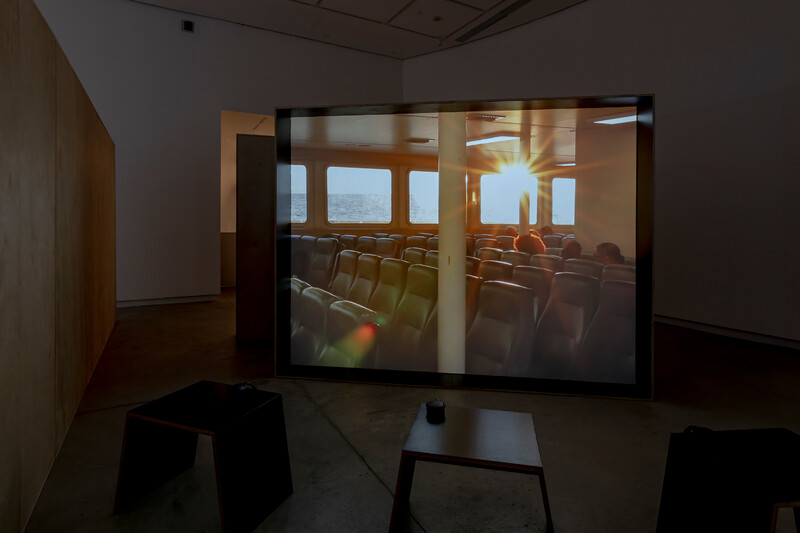
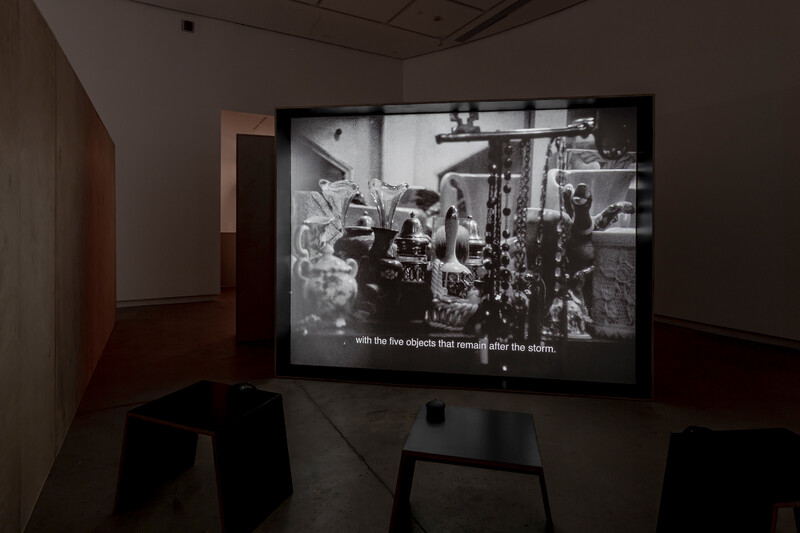
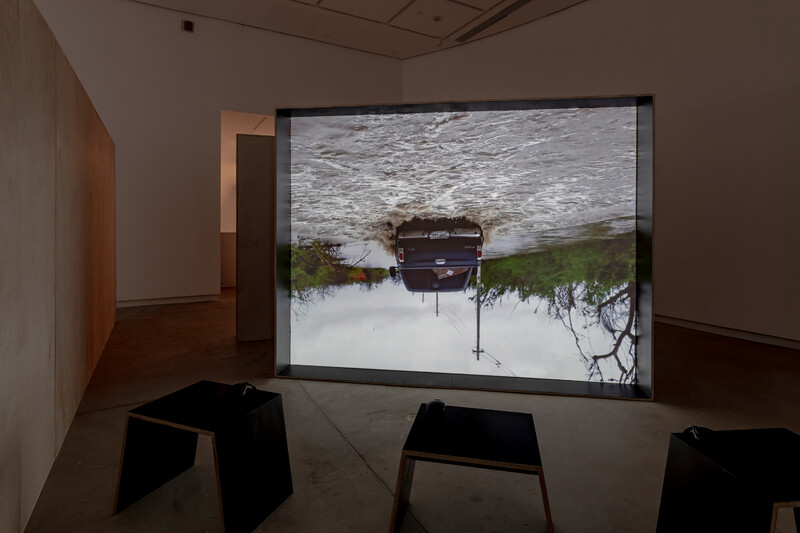
Gosila
I have to go inside the auditorium / and tell the story of humanity / with the five objects left over after the storm.
On September 20, 2017, one of the most violent storms ever to hit the Caribbean made landfall on the island of Puerto Rico. The storm, the likes of which Puerto Ricans had never experienced, gathered in intensity before tearing through the Dominican Republic and the US Virgin Islands, ending in Puerto Rico. Those who survived the storm were bound to the hell of its aftermath. Food and water shortages were pervasive throughout the island, power was virtually wiped out, hospitals were closed because of extensive damage, and basic services all but collapsed. Gosila is not about the hurricane, but was made through it, through the light that possesses life after a disaster. A light that affects the senses, as the hurricane did, a light that does not “tell” or “show” but instead seems thick, merged with air. Beatriz Santiago Muñoz’s films have always been observational, and this work observes history happening through the elements of nature. The storm relates to colonialism, the weather to the actions of blind power in oblivion about the future. The light lightens the injuries, darkness is not the enemy, darkness is another name for intimacy, for shelter...
It is the unchanged minds of humans who are unable to see themselves as one with all forms of life, unable to see that we are not being poisoned, exhausted, and exterminated alone but along with the plants, the animals, the ground, the soil, the stones, the waters. Don’t call the storm a result of climate change. We love to use the word change; it entertains our vanity. The experience through this agony of life is not change, but a huge boundary between our actions and all forms of life, between thinking and doing, between our greediness and the conditions that may assure the coexistence of all, here.

The Blackwood
University of Toronto Mississauga
3359 Mississauga Road
Mississauga, ON L5L 1C6
[email protected]
(905) 828-3789
The galleries are currently closed.
Facebook | Twitter | Instagram
Sign up to receive our newsletter.
The Blackwood is situated on the Territory of the Mississaugas of the Credit, Seneca, and Huron-Wendat.